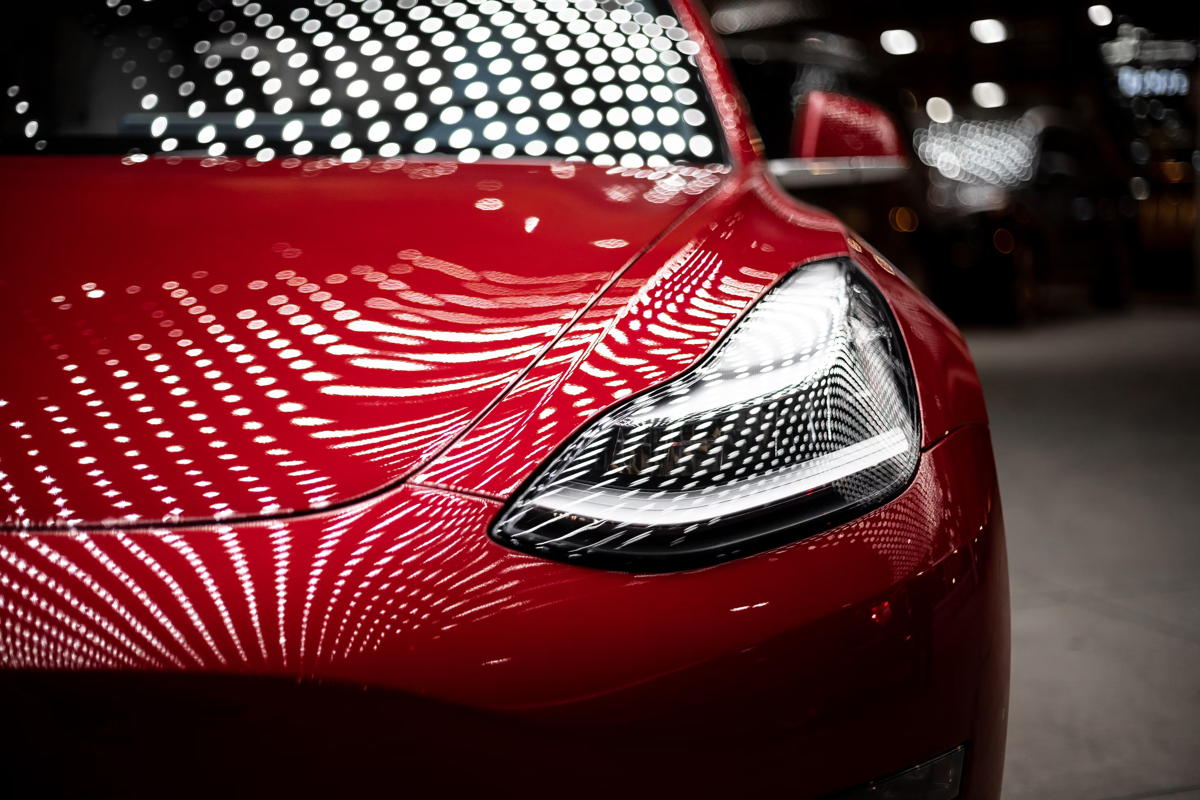

Image credit: Vlad Tchompalov/Unsplash
Tesla shares recovered on Friday after a sharp drop following a report that the company was delaying a robotaxi event originally planned for 8 August.
Optimism around the event had led to an 11-day surge in Tesla’s stock price, but it closed 8.4 percent lower on Thursday, its biggest drop since January.
The shares recovered those losses the following day, but broker UBS downgraded the stock to a sell rating, arguing the company faces increasingly “tepid” demand for EVs and increased competition in China.
“Our view is informed by more tepid demand for EVs (and demand saturation for the current model lineup) in the US and more competitive markets in Europe and especially China,” the broker said.
UBS said Tesla does face growth opportunities outside its core EV business, including its Full Self Driving driver-assistance technology and robotaxis, but said that aside from FSD the other initiatives are “purely R&D”.
“We believe TSLA stock price has gotten caught up in the AI trade/phenomenon,” the broker wrote.
Tesla chief executive Elon Musk has placed more emphasis on robotaxis as EV sales have slowed, falling for two straight quarters through the first half of this year, according to figures it disclosed earlier this month.
The company’s planned robotaxi event was pushed back to October to allow teams working on the project more time to build additional prototypes, Bloomberg reported, citing unnamed sources.
The roughly two-month delay was communicated internally after the design team was told last week to rework certain elements of the car, the report said.
Shares of rivals including Uber and Lyft surged on the report.
Musk has touted robotaxis for years and included them in a 2016 “master plan”.
He has forecast the imminent launch of robotaxi fleets multiple times, including in 2019 when he promised them by mid-2020.
But autonomous taxis have been slow to achieve progress and have been beset by setbacks including a fatal accident involving a Cruise autonomous vehicle in San Francisco last year.
Baidu unit Apollo Go, which operates autonomous taxis in limited traffic-restricted areas of Wuhan, told staff internally in April it is aiming to become the world’s first profitable service in the sector after operating for seven years without making money.
Since 2022 the company’s fleet of 500 vehicles has provided trips for a fraction of what riders would pay for regular ride-hailing services, and makes up about 1 percent of the city’s daily ride-hailing orders.
The service continues to use safety drivers in some vehicles.
Apple reportedly working on lighter, cheaper Vision Pro, another model that links directly to Mac…
OpenAI says GPT-4.1 model family can understand prompts with up to 1 million tokens, features…
Blue Origin jaunt sends Jeff Bezos fiancée Lauren Sanchez into space along with Katy Perry…
Meta to use public posts from EU users on Facebook, Instagram to train AI models…
Apple tops smartphone sales worldwide in first quarter after iPhone 16e launch, in spite of…
Intel sells 51 percent of programmable chip unit Altera to Silver Lake Partners in deal…